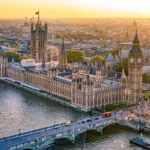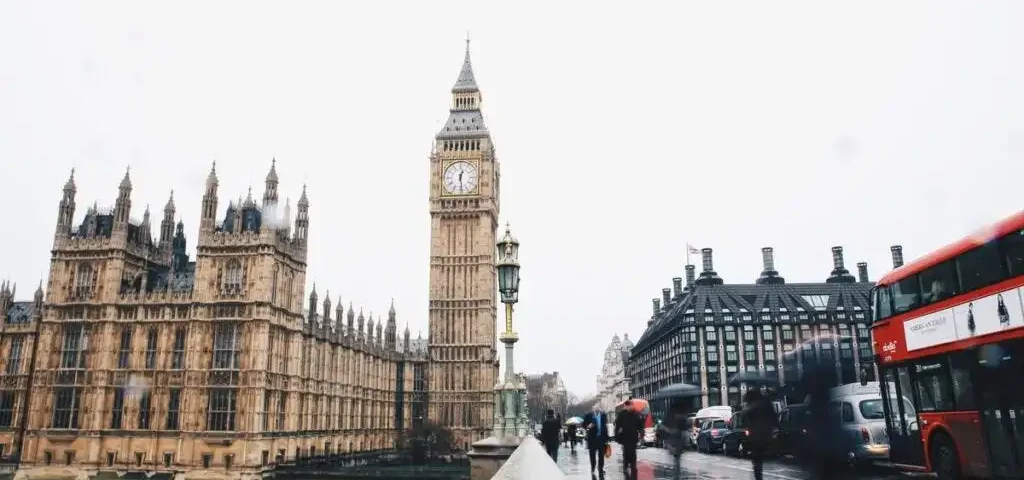
Skilled Worker Visa Maternity Leave and Pregnancy Guidance
September 7, 2024
How to Start a UK Business as a Foreigner?
September 12, 2024With the election of a new government, the political climate in the UK has changed once more, bringing important changes to the fore in immigration policy. The new Labour Government’s stance on immigration is a combination of what made the Conservative Government of the past and what it does not. It is certain that the effects of these new policies will be felt nationwide when the dust settles on this transition, especially in regards to how they handle net migration and asylum.
Continuity in General Immigration Policy
Official figures issued by the Office of National Statistics show a notable decline in net migration to the UK in recent months. This collapse is the result of several stringent policies implemented in the final days of the previous Conservative Government. These measures included raising the minimum wage requirements for skilled workers and students, prohibiting care workers and students from bringing dependents into the UK, and raising the minimum wage requirements for those who sponsor partners and family members. It seems that these modifications, which were intended to reduce inbound migration, have achieved the intended outcome.
Interestingly, the incoming Labour Government has no intentions to reverse these limitations, even though they have expressed worries that net migration is still too high. This decision signals that the next government may prioritize keeping control over migration levels and shows a degree of continuity in general immigration policy. The position taken by the Labour Government suggests that they plan to build on the foundation that their predecessors created, with the possibility of enacting new policies to further curtail inward migration. This strategy is in line with the wider political agreement that, for many voters, immigration control is a crucial issue.
The unwillingness to undo these modifications can also be a reflection of an understanding of the difficulties and intricacies involved in immigration law. The realities of regulating immigration in a post-Brexit UK require a careful balance between addressing the practicalities of migration control and preserving public support, even though the Labour Government may be inclined to pursue a more progressive position on some social concerns.
A New Approach to Asylum
Though it seems to be following the same immigration policy as the previous government, the Labour Government has taken a totally different tack when it comes to refugee difficulties. One of the largest changes is the controversial notion of sending asylum applicants to Rwanda being eliminated. The Conservative Government sent them to a third country in order to dissuade asylum seekers from submitting asylum applications in the UK. Nonetheless, it appears that the UK’s refugee policy have altered given the present administration’s decision to completely abandon this proposal.
Not only did the Labour Government scrap the Rwanda program, but it also made changes to the Illegal Migration Act 2023. Asylum requests that were previously ruled inadmissible under the laws of the Conservative Government are now possible again thanks to these revisions. Claimants were frequently put in legal limbo under the previous regime because no suitable third nation was ready to accept them. As a result, there was a backlog of cases, leaving many people in limbo. The decision by the new government to handle these claims is a definite step in the right direction toward resolving the humanitarian issues related to the asylum procedure.
But the Labour Government intends to do more than just handle current allegations. With an eye toward “stopping the boats,” they have declared their intention to restructure the asylum process in an attempt to address the persistent problem of unauthorized immigration over the English Channel. Despite being a common goal in political discourse, achieving this lofty goal has proven to be a recurring difficulty for succeeding administrations. Although the effectiveness of the new government’s proposals is still unknown, their readiness to alter the asylum system shows that they want to be more aggressive in handling asylum-related matters.
Two Diverging Paths
The way the new Labour Government is handling immigration and asylum demonstrates how multifaceted their policy goals are. They may even tighten rules even more as they stand to benefit from the Conservative Government’s stringent policies regarding immigration in general. Conversely, they aim to demolish and restructure elements of the asylum system that have been censured for their callousness and ineffectiveness.
A key problem for the incoming government will be striking a balance between enforcing humanitarian principles and managing immigration as the UK continues to navigate its post-Brexit realities. The choices taken in the upcoming months will have a long-term impact on the nation’s social and political climate in addition to the people who will be immediately impacted by these policies.
Conclusion
Despite being re-elected to power in the UK, the Labour Government maintains a policy of both continuity and change with regard to immigration. Leading during a period of intense social and political strain is made more challenging by the persistence of stringent immigration rules along with a more humane handling of refugee claims. One thing is obvious, notwithstanding the uncertainty surrounding the intended effect of these regulations: immigration will remain a contentious political issue in the UK.
For further advice please get in touch with our team today by calling 020 8538 0182 or +44 7857 809932, or you can email us on [email protected].
Please note these blogs are to enhance your knowledge and are not tailored advice, for specific advice please get in touch with our outstanding team.

